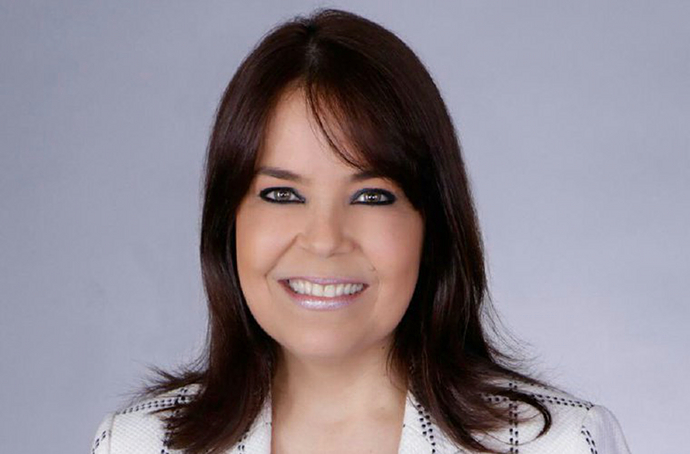María Eugenia Pérez de Preciado, likely our next Electoral Prosecutor
A belated end to a national embarrassment?
by Eric Jackson
At long last! The prospect of an Electoral Prosecutor who will perform the functions of that job! The National Assembly willing, of course — and it seems likely they will approve the nominee, electoral judge María Eugenia Pérez de Preciado. On paper she has the credentials, 12 years as an electoral judge, a law degree from USMA, no heinous crimes or flagrant displays of partisan bias on her public record. There is a history here, but not especially hers.
History has been often denied and sometimes treated as a crime here, but some if it is in order to understand the appointment of María Pérez as the next Electoral Prosecutor and why it has the Martinelistas so upset.
Recall this time five years ago, and if someone wants to charge me with doing so, let them. Cambio Democratico operatives were going around with lists and gifts — detailed lists of who was related to whom, who had a government job, who was a member of which party and so on — to buy votes with bags of groceries, scholarships, building materials, home appliances or cash. By all appearances these lists were derived from confidential data stolen from government databases, but the Martinelli proxy re-election campaign pleaded that all of this was available for purchase on the open market.
Confidential government data for sale for electoral purposes? Say WHAT? But nothing officially said because Martinelli had placed a loyalist, Eduardo Peñaloza, as the electoral prosecutor who could be relied upon to look the other way, and he did.
A good way to get into an argument with the members of our political caste is to assert, with some support in the letter of the law, that the purchase and sale of votes is a crime in the first place. But they will pull out interpretations about how doing a voter a favor is not a crime, so long as it’s not with public funds not intended for that purpose and so long as there is no explicit quid pro quo.
In any case, the Martinelistas were buying votes largely with the laundered proceeds of public funds, laundered kickbacks from overpriced public contracts that by and large went into the Cambio Democratico campaign slush fund. The expectation was that a nothing of a housing minister and the first lady would be elected, Ricardo Martinelli would go on running the country through these front people and he would have a working majority in the National Assembly.
The polls said that it was probably going to work, but although they were all wrong, anyone who looked at any of the reasonably credible ones would have notices this margin of undecided voters. In Latin America “undecided” means intending to vote against the incumbent regime. Where you have a government like Martinelli’s which flaunted electronic espionage against his opponents, ousted elderly couples from their homes of decades to impress rich foreigners and had people killed over land disputes and just to prove how tough the president was, there would be people who took the gifts, told pollsters that they would vote for Cambio Democratico and in the secrecy of the polling booth did something else.
(Should it have been a surprise? In 1989 Tony Noriega sent his guardia into polling places to vote en masse and tilt an election that his nominee was bound to lose — and it turned out that those soldiers voted for the opposition.)
As it turned out Martinelli’s slate lost but had the largest caucus in the legislature. Except, of course, that many of those initially declared elected were by the thinnest of margins and the use of public funds for vote buying was in some of the most flagrant ways. Mr. Peñaloza would not hear of it, but the Electoral Tribunal magistrates brought charges by themselves, conducted investigations that Peñaloza refused to do, and ignored the electoral prosecutor’s findings that there was no harm done. A number of legislative races went to reruns and in several of these Martinelli’s men and women lost the second time around.
Not only was Ricky that much farther from having the votes in the legislature, but the first thing he did after the election was threaten the members of his party’s caucus, telling them that he has dossiers on every one of them and would take revenge if they did not follow his orders.
So many of Martinelli’s legislators were always tránsfugas — party-jumping perpetual turncoats — anyway, and the bullying split the CD caucus. That left an assembly with a third-place (17 out of 71) caucus of President Varela’s supporters, a PRD caucus feuding and split almost down the middle after two straight general election defeats, and a CD faction divided between those who would obey the former president and those who would not. For two years a governability pact was cobbled together to keep Ricardo Martinelli from paralyzing government. Then that crumbled as people and parties began to jump off of the Varela ship. For the last year and a half or so, legislators not wanting to be identified with an unpopular president had been blocking his nominees.
A crudely kleptocratic legislature, in turn, had been getting its staffing budgets blocked by the Comptroller General’s office. A civic movement to oust all incumbent elected officials has arisen alongside the budget scandals.
Arrangements seem to have been made. The comptroller is signing legislative payrolls again. The Electoral Tribunal is taking steps to suppress the #NoALaReelección movement. Stalled Varela appointments are now getting through the legislature. One of these is the replacement for Eduardo Peñaloza, who by the calendar of his term was supposed to leave office at the end of this past December. María Pérez is the one anointed by the president.
Ah, but via kickbacks from overpriced contracts for the sale price, and then by the channeling of government advertising while he was president, Ricky Martinelli has a media empire. Which is protesting about the possibility of a new electoral prosecutor in the middle of a campaign season. Which is complaining that Ms. Pérez de Preciado comes from the Electoral Tribunal apparatus rather than a party machine, so therefore must lack independence from the magistrates. But then Martinelli is claiming that he’s too mentally ill to stand trial for theft and eavesdropping, the government shrinks sort of agree and it doesn’t seem like the rants in his newspapers carry so much weight anymore.












